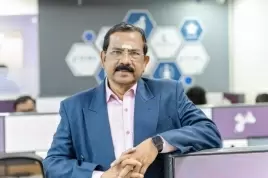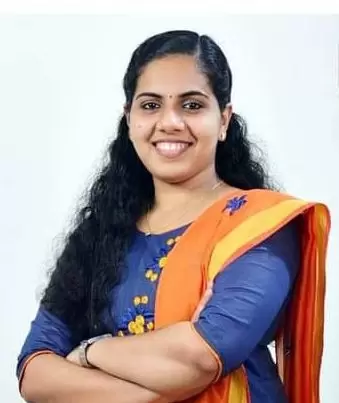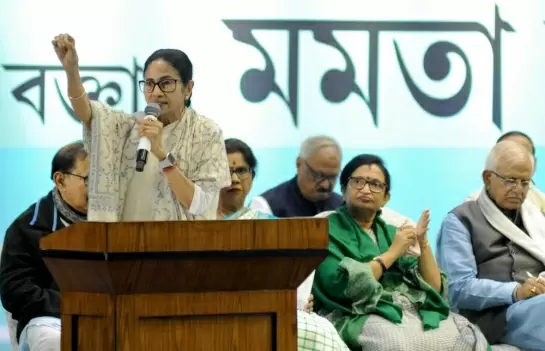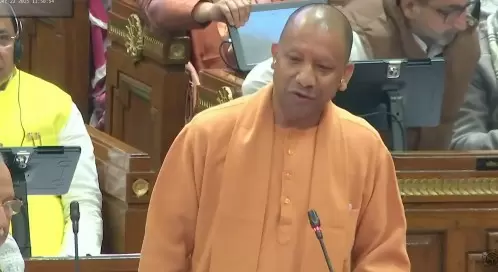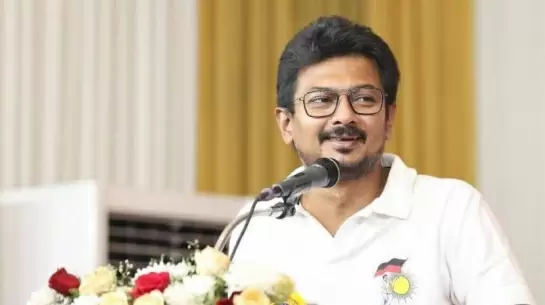How Two Entrepreneurs Turned Old Clothes Into a Rs 2.8 Crore Venture, Cutting CO2 Emissions and Saving Landfills
Shyla F
|
22-September-2025
Vol 16 | Issue 39
At a time when discarded clothes and fast fashion waste are piling up in landfills, two young entrepreneurs, Mayank Singh and Ayush Saxena, have built a business that turns clutter into a cleaner planet. Their startup, Tooused, enables people to recycle used clothes, leather goods, footwear, and electronics, rewarding them with credits that can be redeemed for cash or vouchers.
In less than two years, Tooused has made remarkable strides. In their very first year, the company recorded a revenue of Rs 31 lakh. This year, they have already reached Rs 2.8 crore and are on track to close at Rs 4.5 crore.
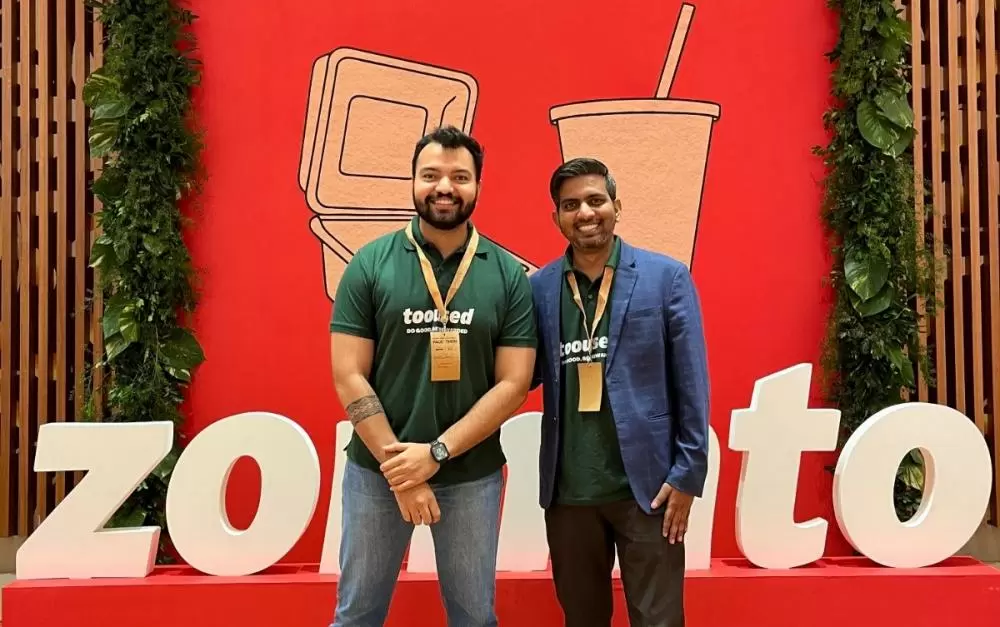
| Mayank Singh and Ayush Saxena, founders of Tooused,turning old clothes into a growing green business.(Photos: Special Arrangement) |
Tooused was founded in 2023 under the registered name Letfly Direct Technologies Pvt. Ltd. Based in Gurgaon, Haryana, it is led by Mayank as CEO, managing tech and logistics, and Ayush as CBO, managing B2B operations. The business started as B2C but expanded into B2B in April 2025.
The company collects clothing from families and businesses that want to declutter. Wearable clothes are sold through around 6,000 buyers and NGOs, who supply Tier-2 and Tier-3 markets. This makes big brands like H&M affordable to buyers who would otherwise not be able to pay the original prices.
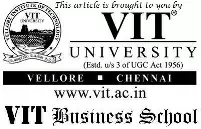
Unusable clothes are recycled into sustainable fabric, supplied to buyers across North India, Punjab, Kolkata, Ahmedabad, and Nashik.
Tooused has also used its recycled fabric for corporate interiors, including the offices of Chaos and Blue Pine. Many quick delivery brands have also partnered with them. Their textile recycling facility (TRF) in Chatarpur, Delhi, handles segregation and recycling.
Explaining the process for individuals, Mayank said: “They just need to download the app and place the order on the app. Within one or two days, a 2424-inch carton will be delivered to their doorstep with the reverse shipping label printed on it.
“Tooused gives some time to their customer to get this bag ready. Once this is done, the logistics partner comes and ships it to the Tooused office within two to three days. Once the carton reaches the TRF facility, the segregation team segregates the clothing by colour, size, and material.”
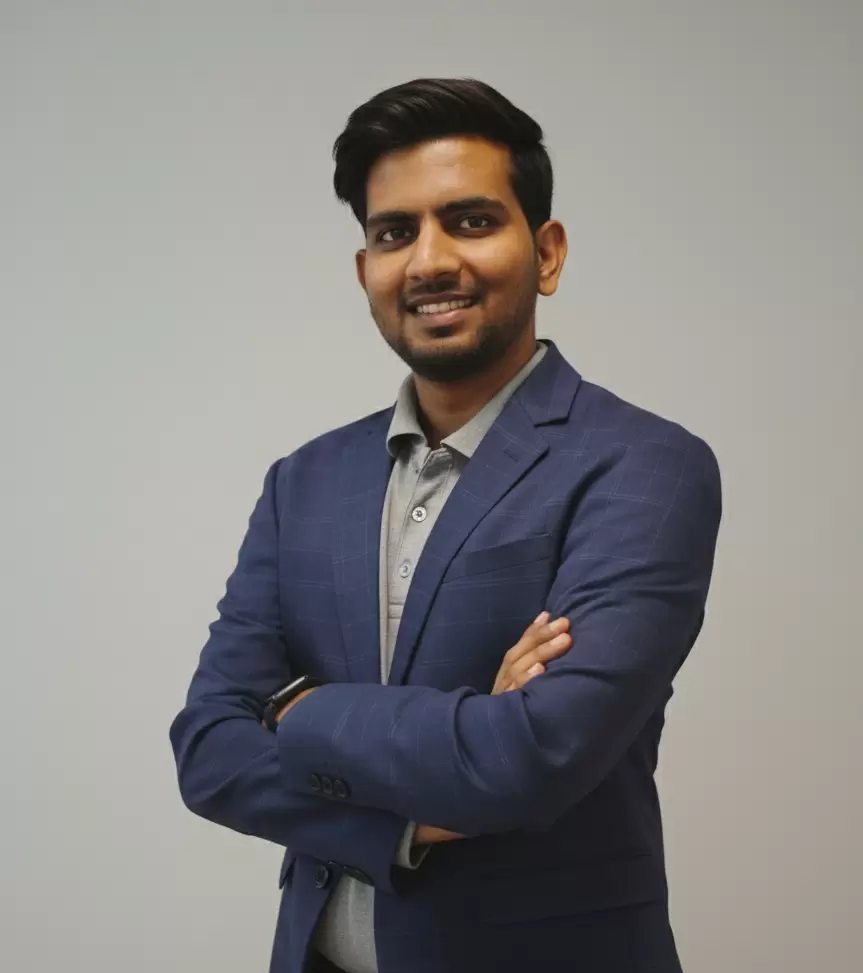
| Mayank, CEO, Tooused, handles tech and logistics in the company |
The Tooused app also gives customers access to a CO2 tracker so they can see the impact of their contribution to reducing carbon emissions.
In exchange for this carton, that usually has 15 to 20 pieces in each, Tooused allots credit points to the customer’s ID in the Tooused wallet available on their app.
“One credit is equal to 1 rupee. These credit points could be used to buy anything from around 200 brands that include Flipkart, Zomato, Swiggy, etc. On average, one box is equal to a voucher of 400 to 600 for the customer,” he explained.
“If the customer wants to cash out this to their UPI wallet, they can do it, but then the amount usually comes down to ¼ of the original, because the resale value of old clothes is very less.”
Tooused has created measurable impact. It handles 4–5 lakh clothing items from 18,000 pin codes across India, reducing CO2 emissions by about 10 million metric tons - equivalent to saving nearly 1.92 hectares of landfill space.
They have also introduced a technological innovation, developed with a Delhi-based textile lab, that enables the mechanical recycling of clothes. This process extracts cotton or polyester molecules from fabric without using water or chemicals, and they have filed for a patent on it.
In addition, they have created reusable packaging cartons made from recycled fabric. Each carton can be used 12 to 13 times, cutting carbon emissions by nearly 82%.
Mayank and Ayush began with an initial investment of Rs 1 crore from friends, family, and their own savings. The team, which started with three people, has now grown to 20. Their 4,500 sq ft TRF facility processes 40–50 cartons daily, with a capacity of 5,000–6,000 tons of clothing.
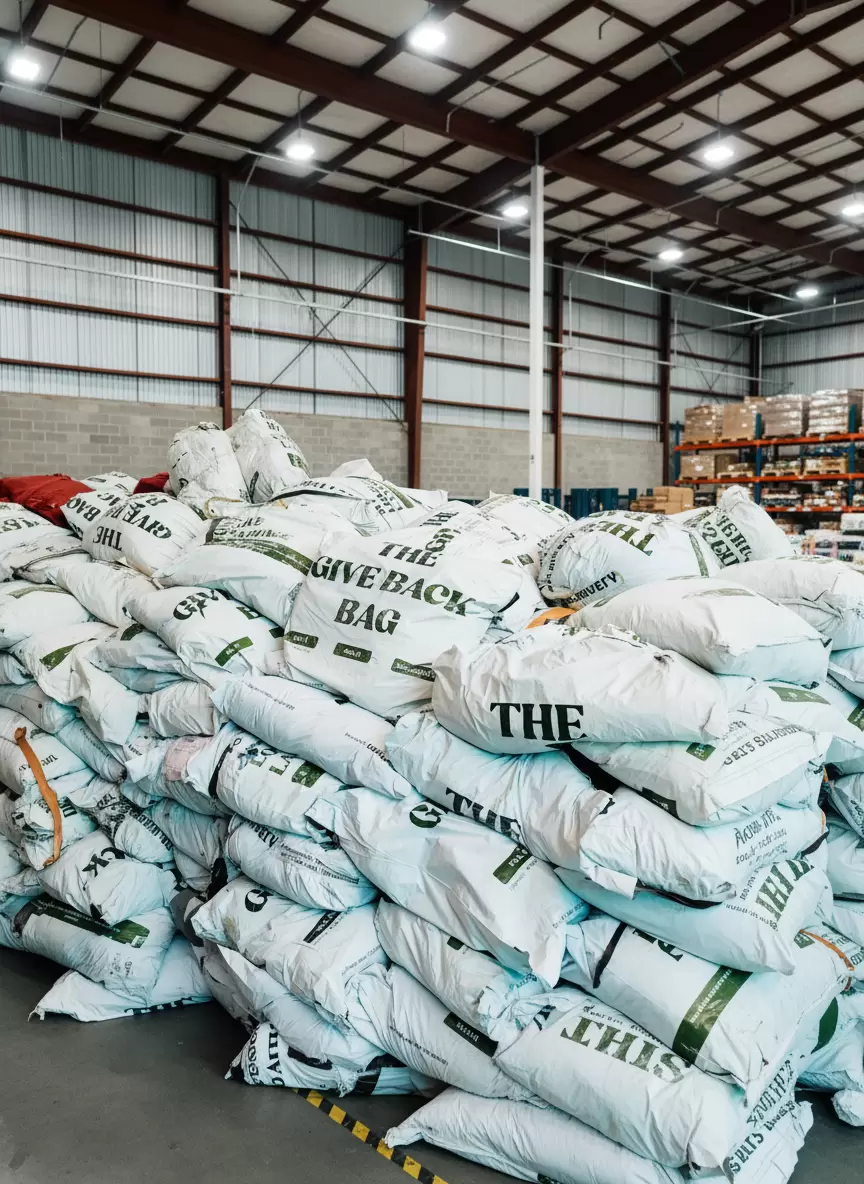
| Thousands of clothes collected from across India ready to be sorted, recycled, and reused lying at Tooused’s facility |
Tooused has also partnered with a Mumbai company that works with waste pickers. Several top brands, including Allen Solly, Louis Vuitton, H&M, Spykar, BlackBerry, Lee, and Levis, are associated with them.
They have also impacted the lives of the Waghri community - also called pheri wala or bartan wala - who sell utensils in exchange for clothing. This community is on the verge of shrinking because people don't allow them in gated societies, and several other factors are also impacting their livelihood. About 15–20 members of this community are now employed at the TRF facility.
Mayank Singh was born in 1991 in Tambaram, Tamil Nadu, where his father served in the Indian Air Force. His mother was a homemaker, and he has an elder sister. Due to frequent transfers, his schooling was spread across Assam, Baroda, the Republic of Congo, and finally Kendriya Vidyalaya, Gandhi Nagar, where he completed his 12th in 2009.
He graduated with a B.Sc. in Electronics in 2012 and later earned a Masters in IT from Gujarat University in 2014. His early career began as an intern developer in 2015 with a stipend of Rs 2,500, later becoming a full-time employee. From 2016 to 2020, he worked in IT companies while developing his own software, Campus 365, which was acquired in 2023.
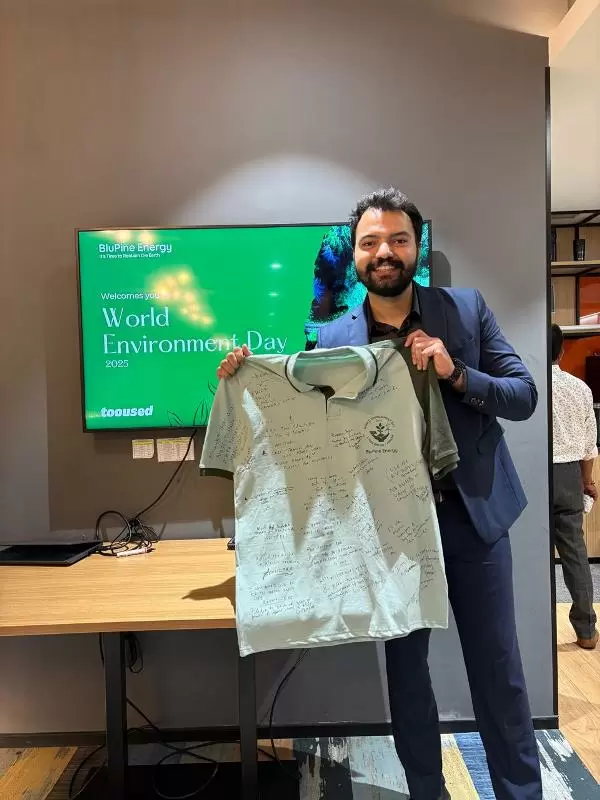
| Tooused – driving change for the planet, one recycled garment at a time |
His advice to the upcoming entrepreneurs is: “If you have an idea, do something around it; otherwise, someone else will get the idea and do it. The best is to do a lot of research before getting into it. If you want to work B2B, reach out to people on LinkedIn.
“If you want to get into B2C, then first reach out to your neighbours. They will give you the best reviews, and that is how I did my research. One more thing that I want to tell the upcoming entrepreneurs is, don’t depend too much on investors. Build some initial fraction so that you can save the equity percentage when the business grows.”
Mayank now lives in Arjangarh, South Delhi, with his parents, wife Jayashree, and 2.5-year-old son Mihit. In his free time, he enjoys outings with his family, though they often remind him to spend less time on work.



